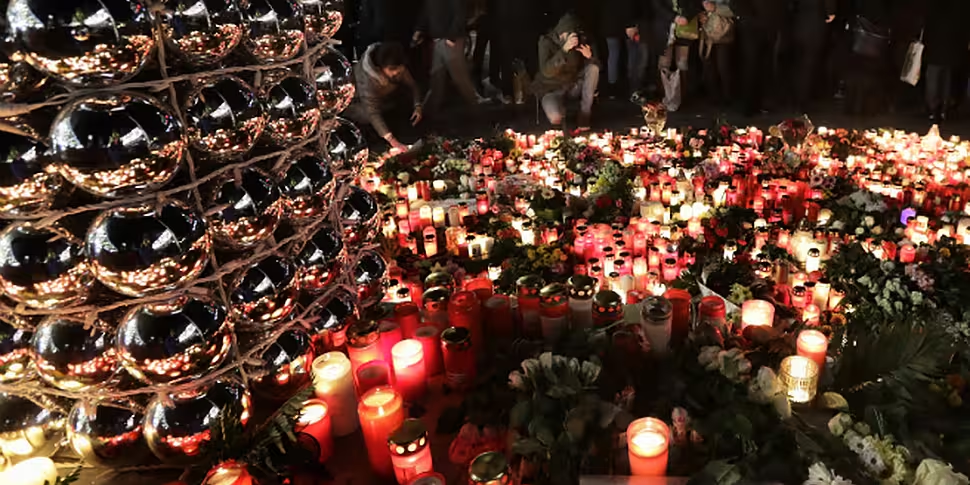The main suspect in the Berlin lorry massacre had been under surveillance for several months this year, German officials admit.
A manhunt is under way across Europe to find Tunisian asylum seeker Anis Amri, who arrived in Germany in July 2015 and is suspected of driving a truck into a crowd at a busy Christmas market.
Authorities started investigating the 24-year-old in March this year after a tip-off he might be planning a robbery to raise money to buy automatic weapons for a possible attack.
They followed him until September, when it was decided there was no evidence to back up the original suspicions.
During that time, Amri was involved in a bar fight as well as drug dealing in a park, according to the covert operation.
After that, he fell off the radar.
Rainer Wendt, the head of a union representing German police, said civilians are "rightly outraged and anxious that such a person can walk around here, keep changing his identity and the legal system can't cope with them."
Meanwhile, German newspaper Der Spiegel criticised authorities who "had (Amri) in their crosshairs and he still managed to vanish."
On Wednesday, it was reported that police searched a refugee centre in Emmerich, west Germany, where Amri stayed a few months ago, as well as two apartments in Berlin.
Prosecutors warned the suspect could be armed and dangerous and have offered a 100,000 euro (£84,000) reward for information leading to his arrest.
German newspaper Bild quoted an investigator as saying Amri had looked for people to join him in an attack this year and tried to buy a pistol from an undercover policeman.
The suspect is believed to be armed and dangerous and has links to Islamic extremists, say investigators.
He is thought to have used six different aliases and three different nationalities.
The interior minister of North Rhine-Westphalia state, Ralf Jaeger, said Amri had been in contact with the network of a leading Islamist ideologist known as Abu Walaa.
Amri was a failed asylum seeker whose application was rejected in July.
Attempts to deport him failed as he did not have valid identity papers, Mr Jaeger said, adding that Tunisia had initially "denied that this person was its citizen".
German officials tried to get new papers in August, but they only arrived on Wednesday - two days after the Berlin attack - he said.
Amri's father told a radio station his son had left Tunisia seven years ago as an illegal immigrant.
He was accused of violent robbery in his home country and served four years in an Italian prison over allegations he was involved in burning down a school, according to reports.
The Islamic State terror group has claimed responsibility for Monday's Berlin massacre, saying one of its "soldiers" carried out the attack.
More than 4,000 Tunisians have left to join IS and other militant groups overseas, recruited by hardline preachers or online networks.









